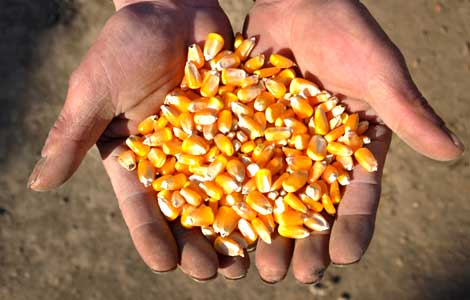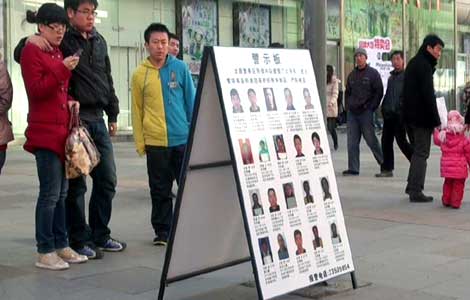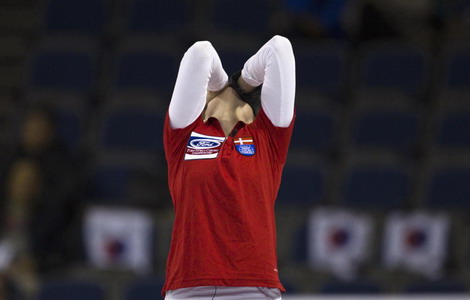 |
|
|
|
|||||||||
A debt dispute in Guangdong province has attracted widespread attention, not because of the intricacies of the case itself, but because the court hearing introduced a "jury system".
Seven "jurors" along with the defendants, plaintiffs, lawyers and judges, were present at the Dongguan Intermediate People's Court on Friday. The presence of the jurors was to promote interaction by inviting residents to witness trials, according to a top judge of the court.
Du Zhiqiang, a senior judge from the court, said the new system requires judges to consult jurors before issuing a verdict. However, in this system, jurors do not have the right to pronounce the suspect guilty or innocent, unlike their counterparts in the West.
The move marks progress "in demonstrating the principle of fairness, justice and openness in handling court cases", said Liang Zhonghua, one of the jurors.
Friday's jurors consisted of four businessmen, one law professor, a lawyer and a journalist, Du said. "People from all walks of life are welcome to apply for or be recommended to join our bank of jurors, once they are older than 23," he said.
Wu Yida, a Guangzhou-based lawyer, said it is a good attempt to promote judicial transparency.
Chen Conglin, a businessman, urged the court to take bolder steps to give jurors the right to pronounce verdicts in future.
This viewpoint was endorsed by Zhang Qingyuan, a law researcher with the Guangdong Academy of Social Sciences.
"If the jurors cannot affect the court's decision, their supervision over the judges will be limited."
However, the jury system does not have a legal framework and the Civil Procedure Law does not require courts to introduce such a system, Zhang said.
Despite this, Zhang said there are many other ways to improve judicial transparency, such as introducing supervision of courts through local people's congresses, media and the public.
Zhang Yiren and Zhao Yinan contributed to this story.
Wu Ying, iPad, Jeremy Lin, Valentine's Day, Real Name, Whitney Houston, Syria,Iranian issue, Sanyan tourism, Giving birth in Hong Kong, Cadmium spill, housing policy

|

|

|

|

|

|